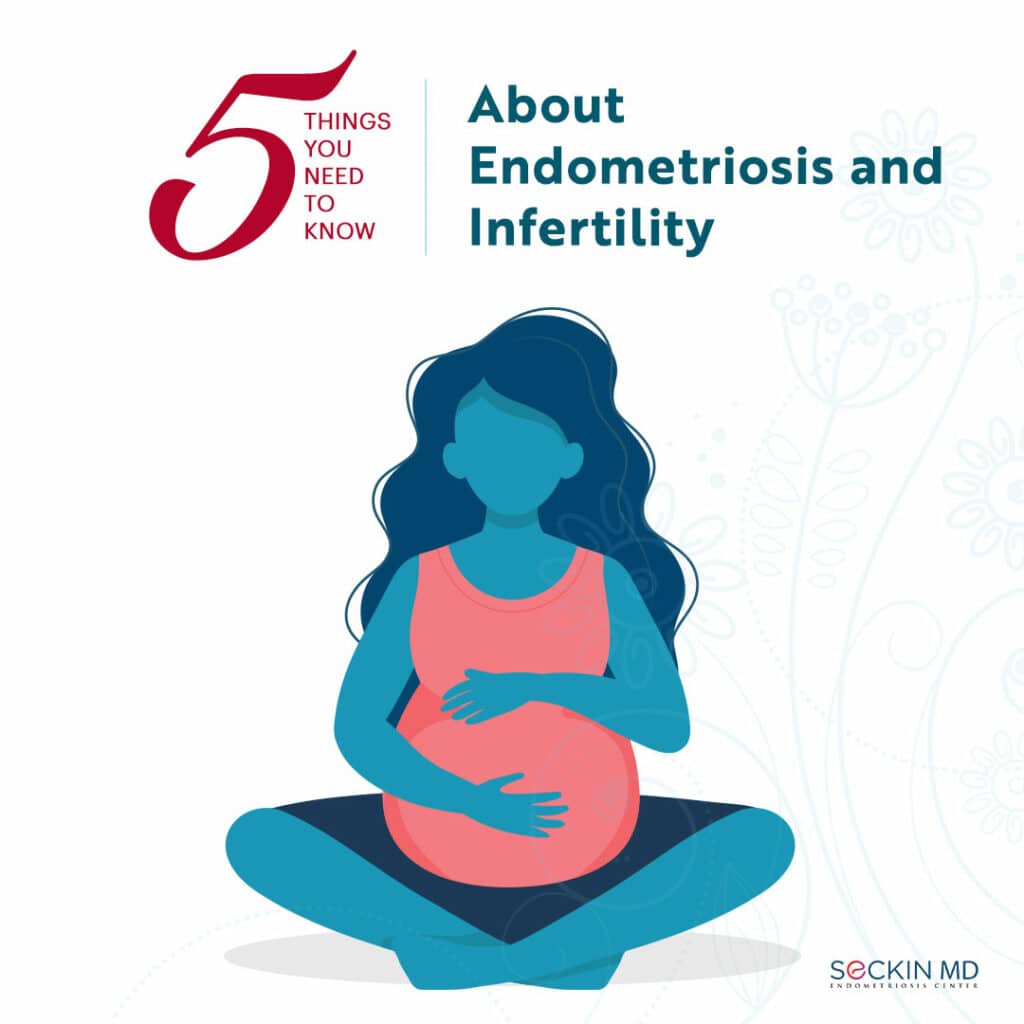5 Things You Need to Know About Endometriosis and Infertility

Infertility is not being able to become pregnant within 12 months of unprotected sex or artificial insemination in women younger than age 35 or within six months in those ages 35 or older. Endometriosis is one of the leading causes of infertility, with the condition affecting nearly 50% of cases. However, endometriosis is not the end of the road for those wishing to become pregnant. Here are five things you need to know about endometriosis and infertility.
1. Endometriosis does not equal infertility
Endometriosis may increase the risk of infertility. However, proper management and care can ensure that your chance of becoming pregnant greatly increases.
Early diagnosis and approaches such as laparoscopic deep excision surgery that removes all endometriosis lesions can improve your pregnancy prospects.
Many link low AMH levels due to endometriosis to infertility. AMH is more of a marker of egg quantity rather than egg quality. So, there is no need to panic if your AMH levels are low. AMH levels need to be taken in context with other hormone levels, your cycle regularity, and your age,
2. Endometriosis can cause infertility due to several reasons
We do not fully understand the exact way in which endometriosis causes infertility. However, an inflammatory response within the reproductive tract due to the lesions, a decrease in ovarian reserve (especially if endometriosis within the ovary is present), and impaired embryo migration down the fallopian tubes (due to possible tubal inflammation) can all play a role.
3. Getting pregnant will not cure endometriosis
It is a misconception that pregnancy can cure endometriosis. There is no known cure for the disease. Endometriosis is an estrogen-dependent disorder. In pregnancy, progesterone levels are high, which can improve endometriosis symptoms but this does not cure the disease. Progesterone acts to counter estrogen’s actions. During exclusive breastfeeding, estrogen and progesterone levels are both low, and this too may help in the temporary relief of symptoms. However, if not diagnosed and treated, symptoms can return right after pregnancy or after stopping breastfeeding as soon as menstruation begins again.
4. Egg freezing might be a good idea
If you have been actively trying to conceive, your doctor may recommend getting pregnant immediately after endometriosis surgery. However, egg freezing can be a good option for women who are not yet ready for a baby. The ideal age to freeze your eggs is in your 20s or before age 35 for optimal egg quality. However, any time is ok. Having healthy eggs in a bank can improve your chances of conceiving via in vitro fertilization (IVF) if you end up needing to use that approach to conceive. However, egg freezing can be costly and most insurance companies do not cover the cost, whereas more commercial ones now start to cover the cost of IVF.
5. The right treatment approach could preserve or even restore fertility
Gynecologists often recommend hysterectomy or oophorectomy as treatment options for advanced stages of endometriosis. However, this results in permanent surgical infertility and is something we do not advocate at Seckin Endometriosis Center. The right treatment approach starts with having an infertility workup, which includes several diagnostic tests that can identify your current fertility status.
If endometriosis is the likely cause of your infertility, laparoscopic cold excision surgery together with organ reconstruction can not only reduce endometriosis symptoms, but can also restore proper reproductive anatomy and function, greatly increasing your chance of getting pregnant.
Did this article teach you anything new about endometriosis and infertility? Please share your thoughts by leaving a comment on our post on Facebook or Instagram
Get a Second Opinion
Our endometriosis specialists are dedicated to providing patients with expert care. Whether you have been diagnosed or are looking to find a doctor, they are ready to help.Our office is located on 872 Fifth Avenue New York, NY 10065.
You may call us at (646) 960-3080 or have your case reviewed by clicking here.